Specialisms
Students on our Graduate Diploma in Conservation Studies programme choose from one of five specialisms

Conservation Studies
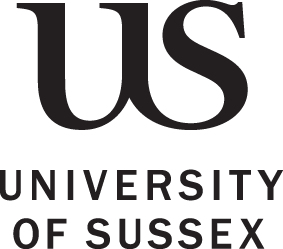
The Graduate Diploma (Level 6) is the start of your transition into Conservation Studies. The Graduate Diploma provides the theoretical and practical knowledge and experience necessary to start your career as a conservator and to begin to develop an area of specialisation.
The programme is designed to be accessible from both the humanities and science study backgrounds. Students choose one of the pathway specialisms below, yet elements of interdisciplinary work are still involved.
Students on our Graduate Diploma in Conservation Studies programme choose from one of five specialisms
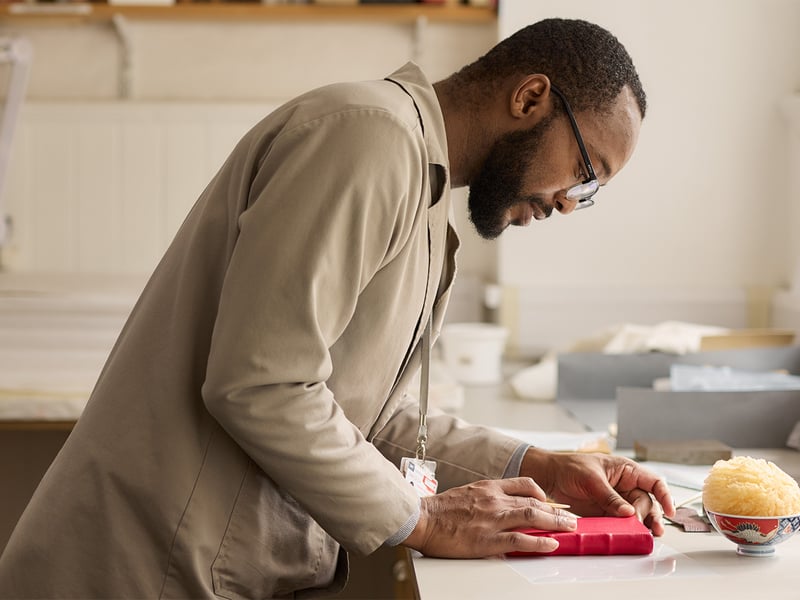
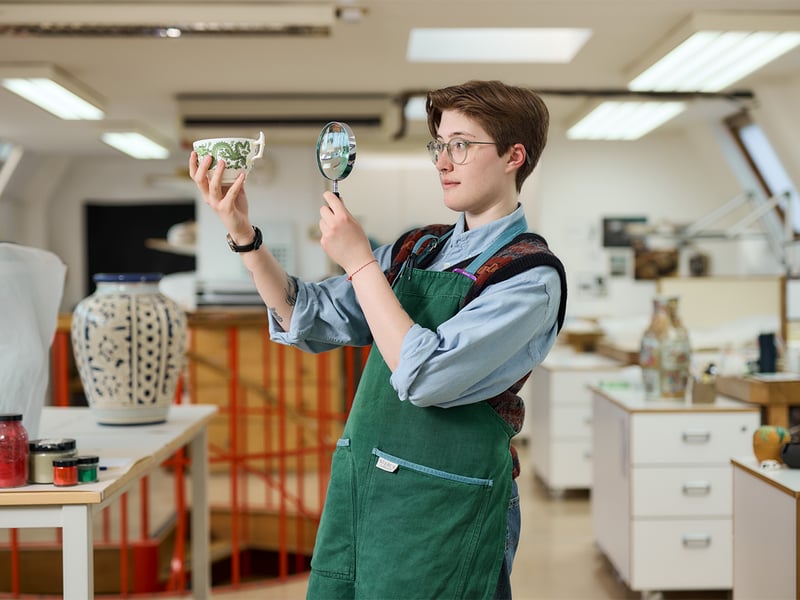
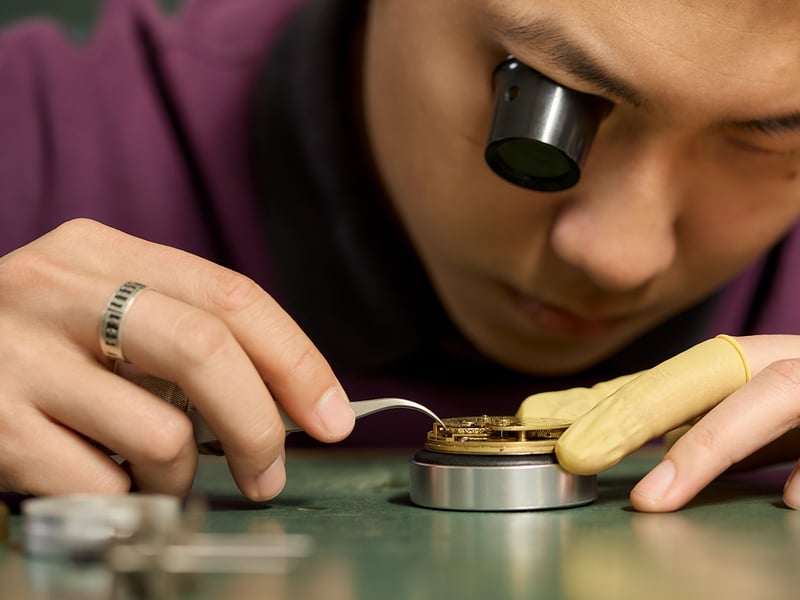
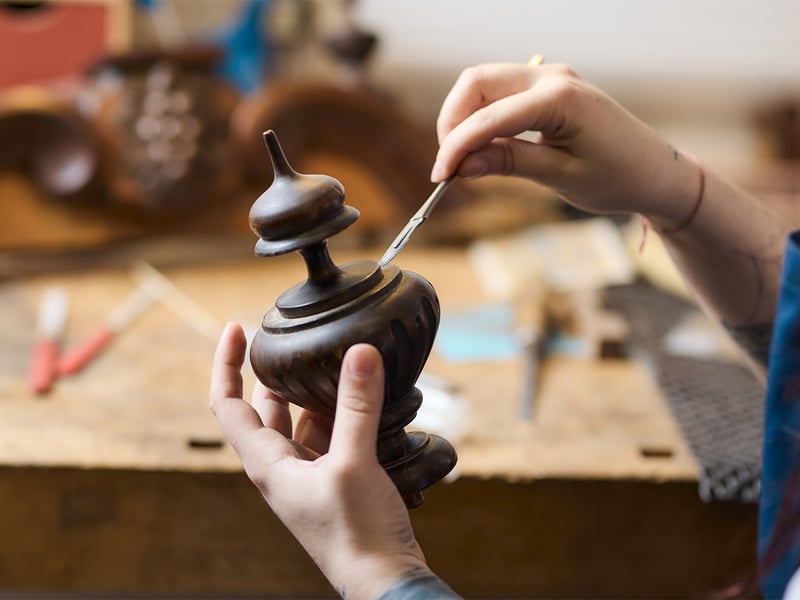
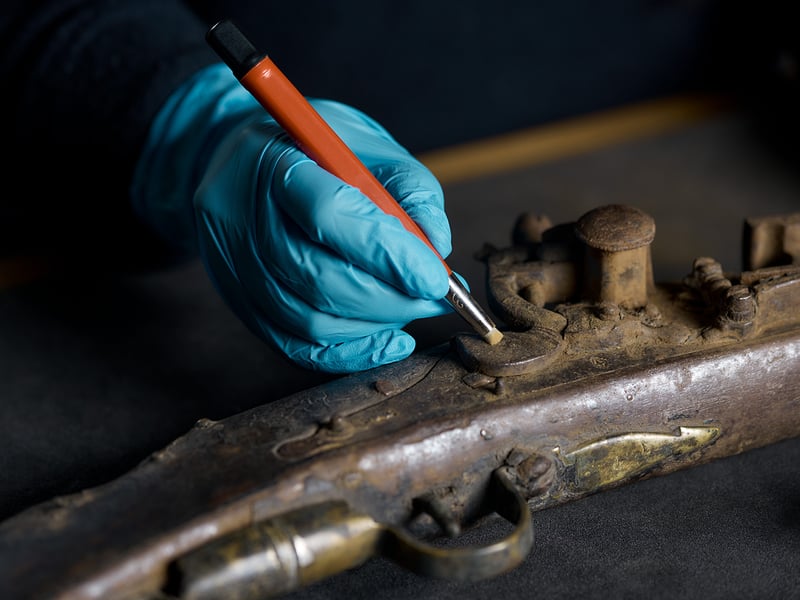
The Graduate Diploma in Conservation Studies is ideal if you are changing direction or seeking to formalise existing experience. It provides a solid foundation in conservation methods, contextual knowledge and professional practice, preparing you for employment or further study. Our alumni now work for prestigious institutions worldwide, including the Royal Swedish Palaces, Columbia University Library, and the British Museum.
Studying Furniture Conservation
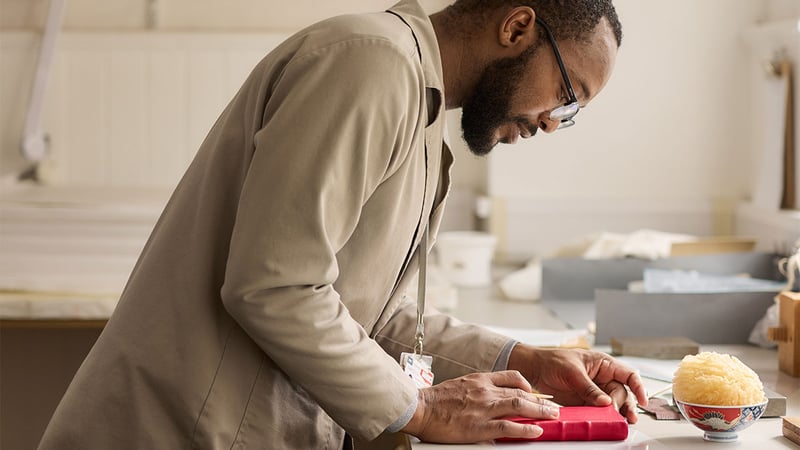
Archaeological Ceramics
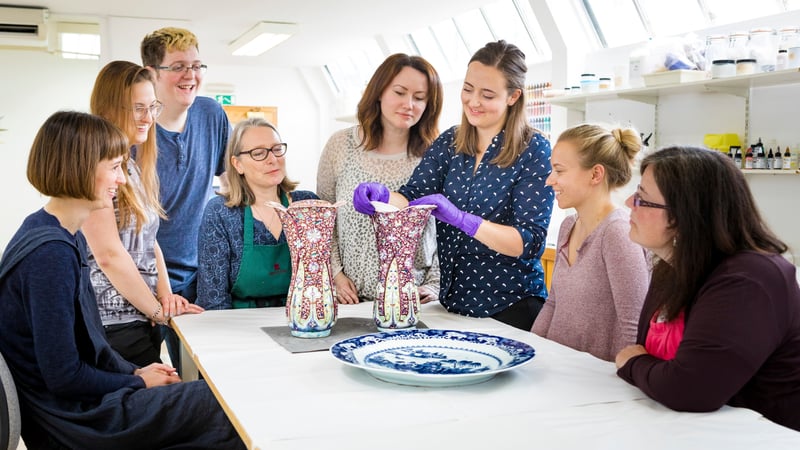
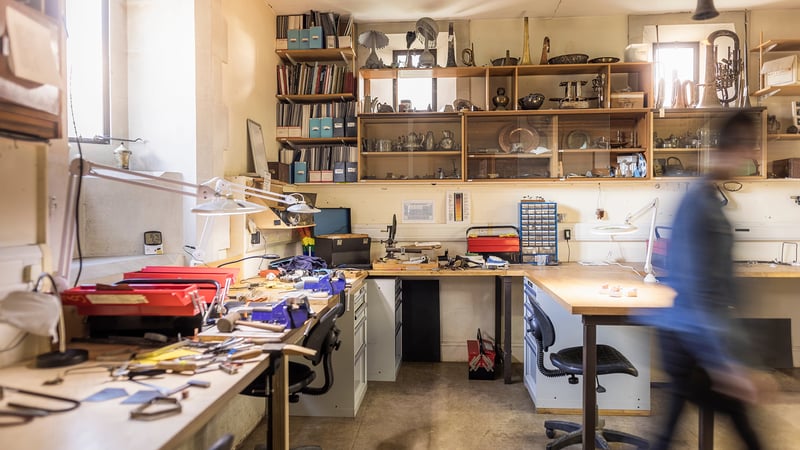
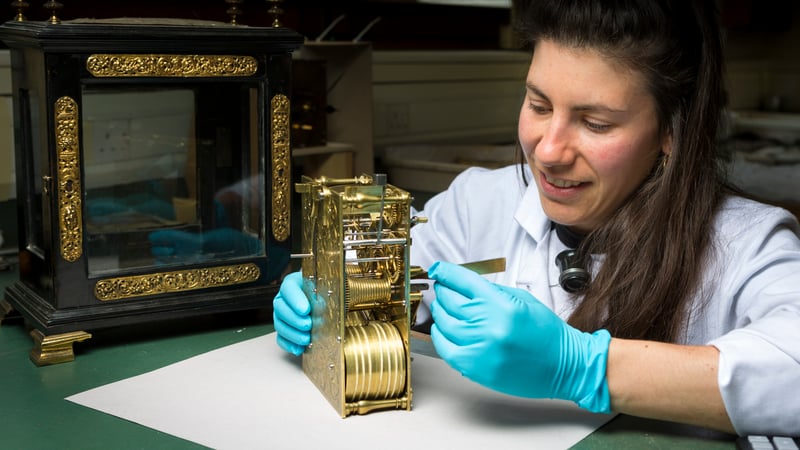
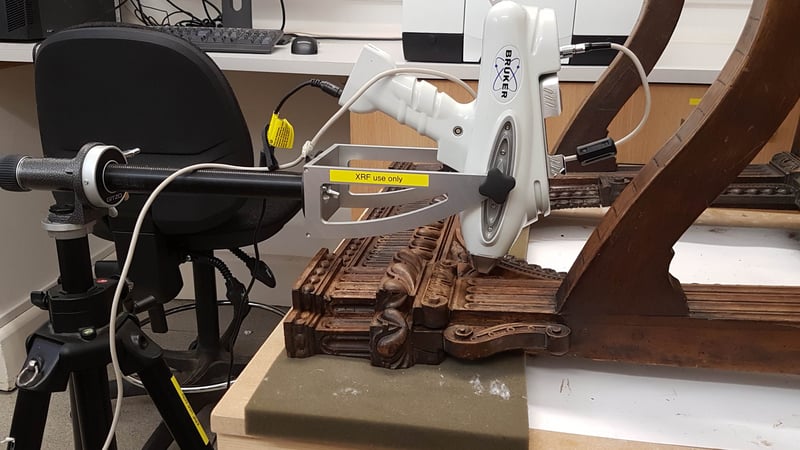
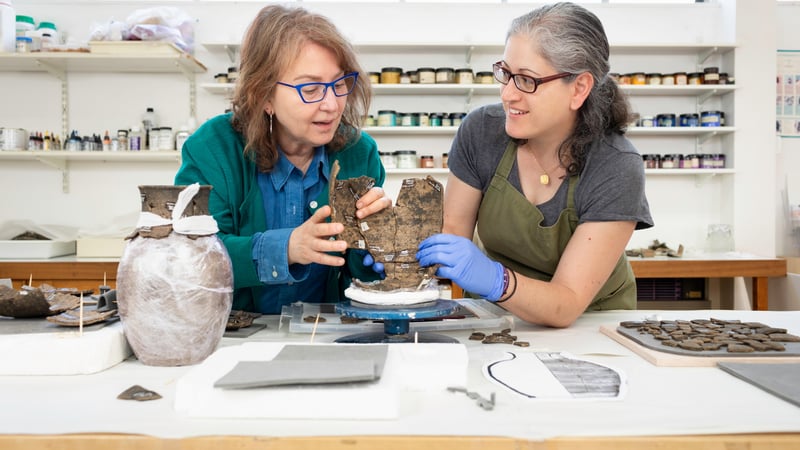
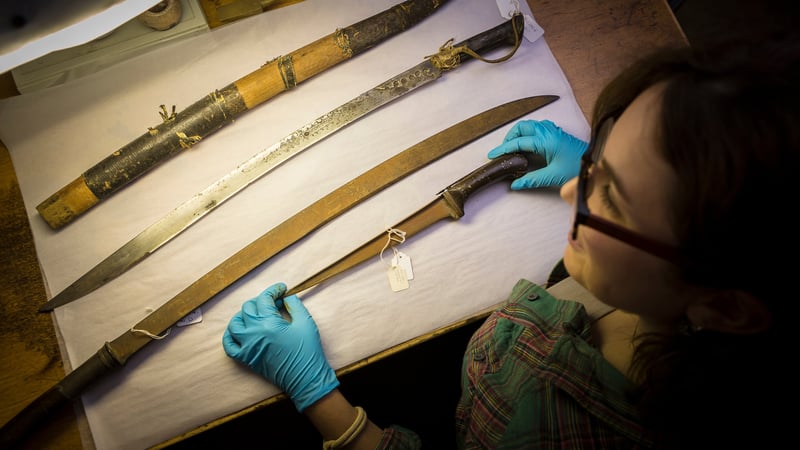
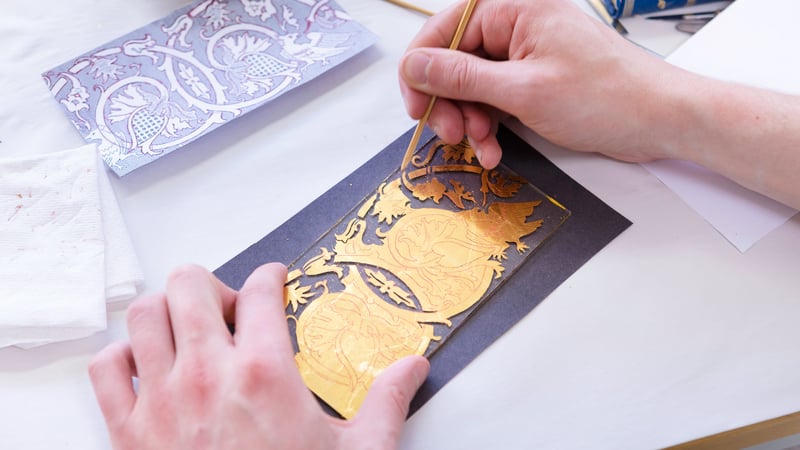
Student Life at West Dean
Studying Metalwork Conservation
Studying Ceramics Conservation
Archaeological Ceramics
Studying Conservation of Books & Library Materials
Tour the Analytical Lab
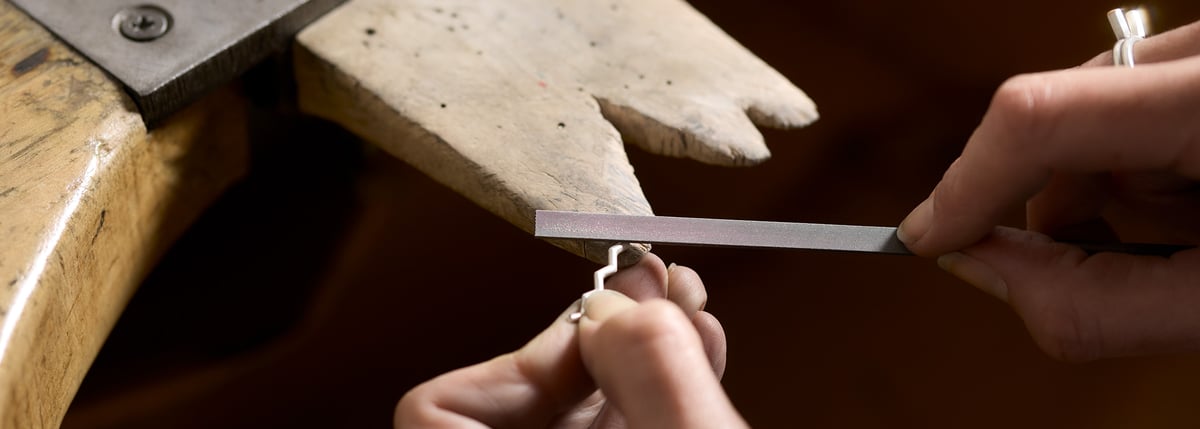
Graduate Diploma Conservation Studies students have access professional workshops and studios seven days a week. Specialist equipment and facilities include the analytical laboratory, forge, pottery studio and dedicated Arts and Conservation library.
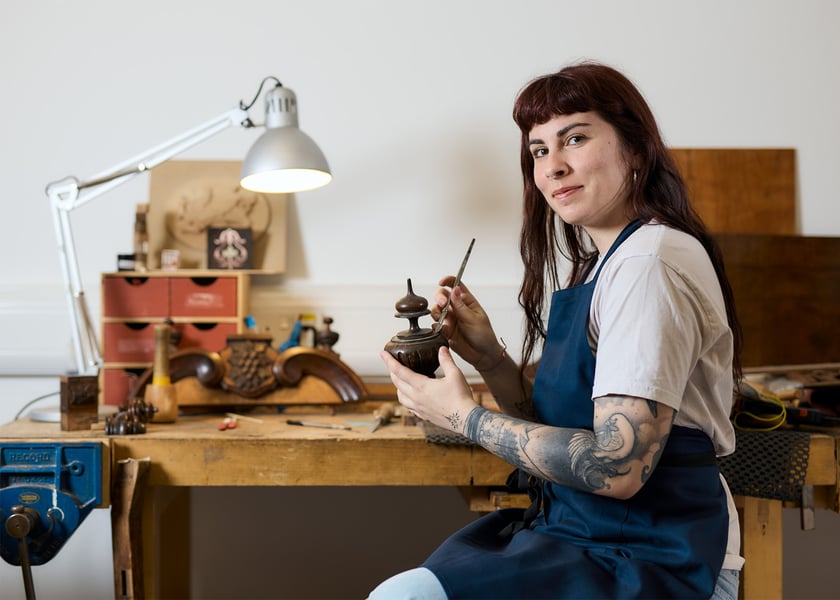
Our School of Conservation offers a dynamic, internationally connected and respected learning environment where students benefit from the unique opportunity to study in a working historic house. Students enjoy access to well-equipped professional workshops, studios, and a state-of-the-art analytical laboratory.
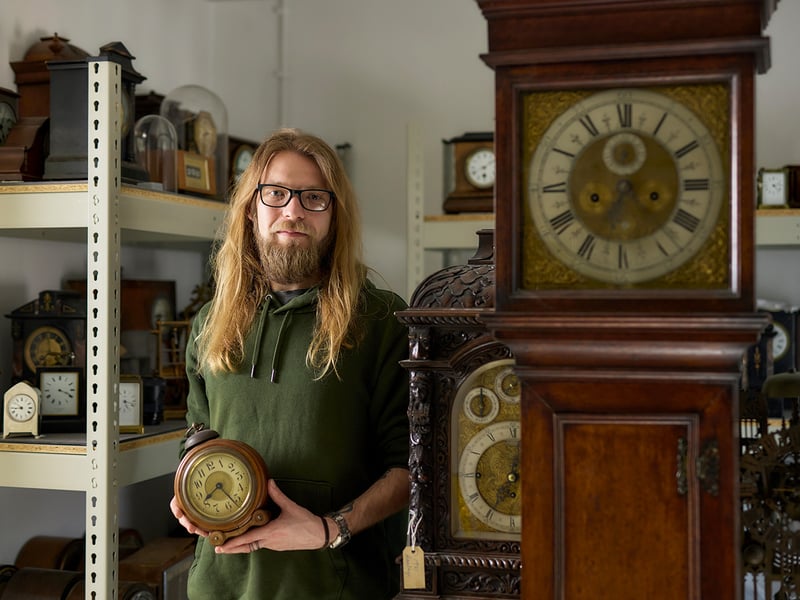
On completion of the Graduate Diploma, many students go on to study the MA Conservation Studies which includes a six-week work placement to broaden practical experience, build contacts and gain transferable skills. Others pursue entry-level positions in the heritage sector. The College’s extensive links with museums, conservators and professional bodies in the heritage sector open up an impressive range of work placement opportunities.
Graduates have had placements at, or gone on to work with:
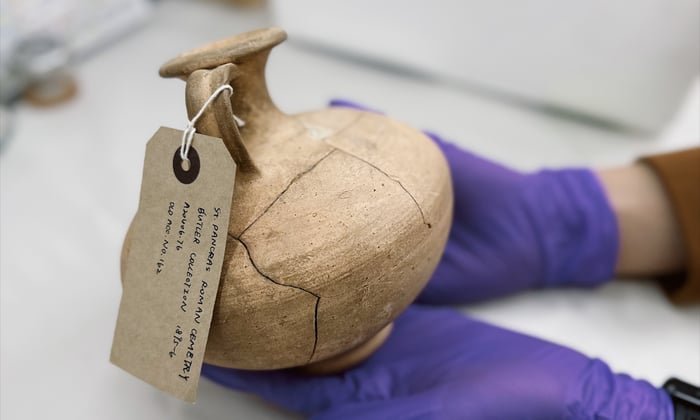
When most people think of ceramics, they picture delicate china teacups or decorative pottery. But what many don’t realise is that ceramics play a significant role in archaeology, opening windows into the past and revealing stories of ancient civilizations.
One of the core principles in ceramic conservation is understanding the balance between preserving the object’s...
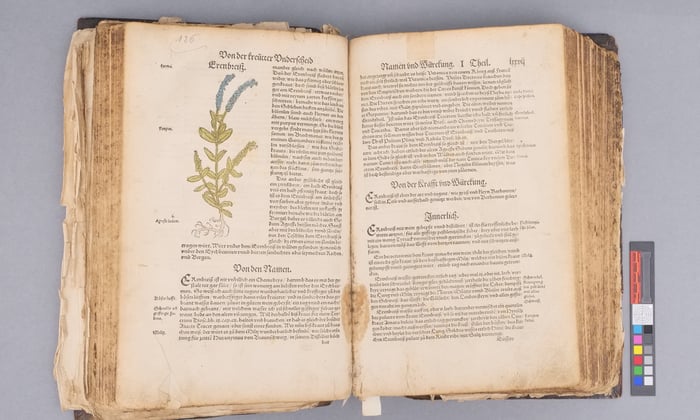
- By Megan an MA Book Conservation Student
There is a box on my workbench that, when opened, displays four smaller boxes. If you open any of these smaller boxes, the contents look astonishingly like the inside of a box of After Eights, with all the chocolates lined up in their little packets. Rather than minty treats, these boxes contain what my colleagues jokin...
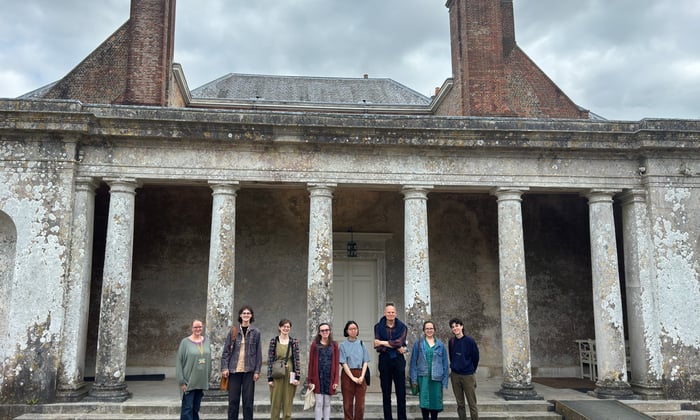
- By Joanna Daborn, Graduate Conservation Assistant
During June, the Graduate Diploma and MA Books Conservation students were given the amazing opportunity to visit the 18th Century Print Room at the National Trust property, Uppark House. While the house is currently closed to the public due to structural conservation work, the Print Room itself is permanently closed to the publi...
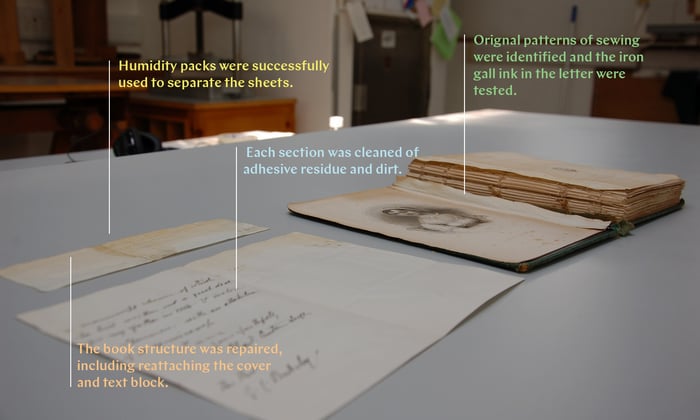
Are you curious about the art and science of restoring and preserving historical artefacts? Passionate about protecting cultural heritage for future generations? Then you could find a career as a conservator both exciting and rewarding.
What is a conservator?Becoming a conservator is more than just learning how to fix old items. Conservators engage in delicate and highly skilled w...
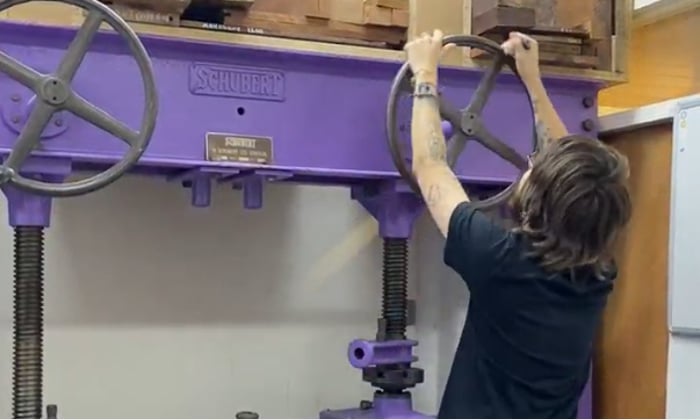
Over summer, students and tutors from the metalwork and furniture conservation programs undertook the conservation of a Schubert's Veneer Press. The press had spent the last 15 years exposed to the elements in a field. Prior to this, it served for decades at the renowned Barnsley workshops, where it helped train generations of skilled furniture makers. Despite significant rust and corrosion...
If you fulfil the entry requirements, you will be asked to complete a practical test, in your own time, and invited to visit the College for an interview with a programme tutor and another member of academic staff
2026/27 Tuition fees
UK Home students
• £15,850
International students
• £17,800
Find out more about tuition fees and admissions.
Funding
You may be eligible to apply for a Student Loan to cover course fees and/or maintenance; more information can be found on the Government Student Finance website.
Scholarships and Bursaries are also available based on individual need.
If you only wish to apply to West Dean, please complete the application form below and email to [email protected]. If you are applying to more than one institution, please apply through UCAS using the following links.
GD Conservation Studies - specialising in Books and Library Materials
GD Conservation Studies - specialising in Ceramics
GD Conservation Studies - specialising in Clocks
GD Conservation Studies - specialising in Furniture and Related Objects
Need more information? Have a question? Speak to our course advisors
Email: [email protected]
Phone: +44 01243 818 300 and select option 1
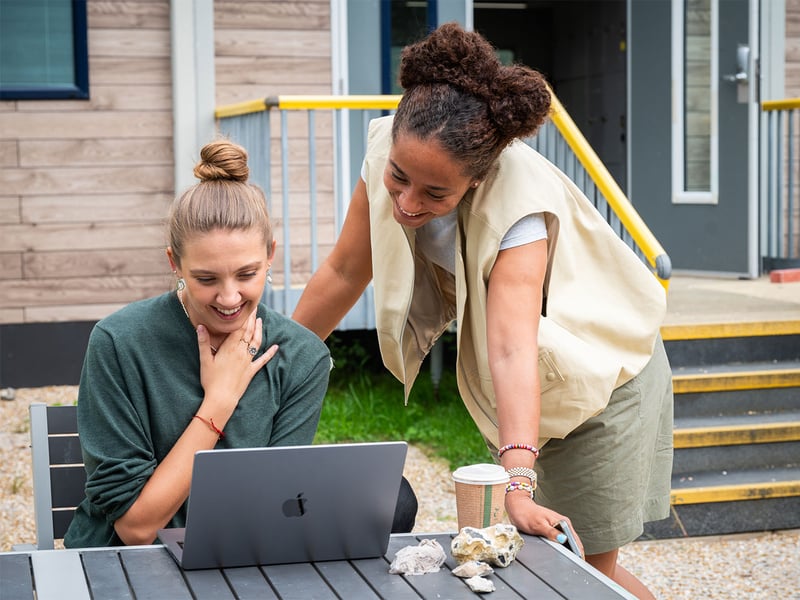
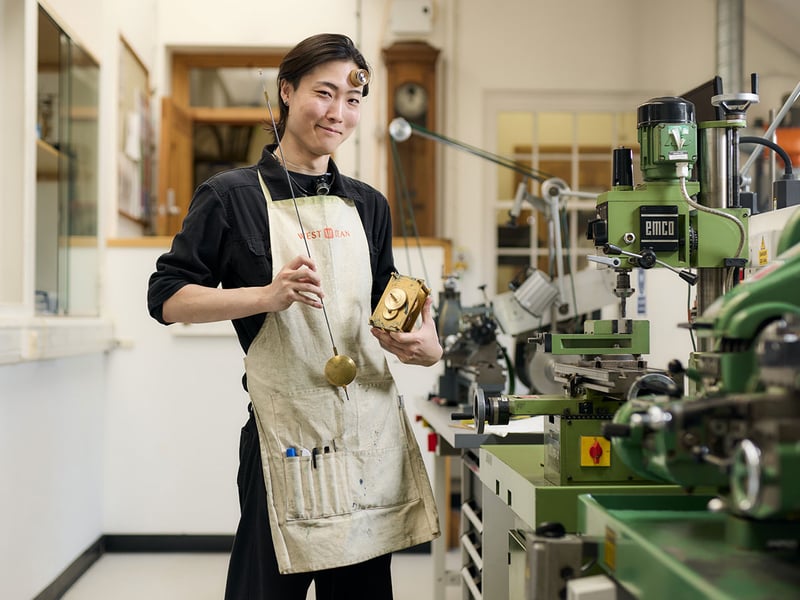
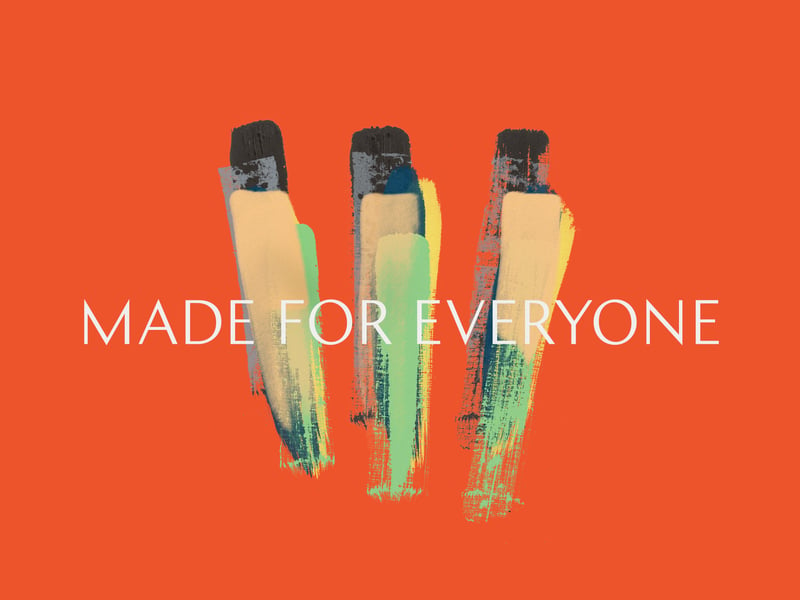
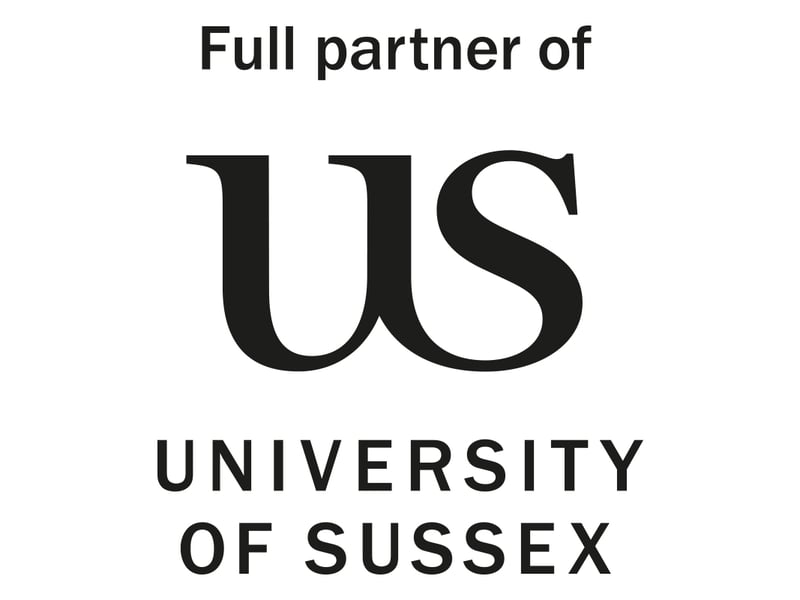
Commendations from the University of Sussex include:
"This re-validation further builds on the success of the courses, which have been refined over a number of years to produce excellent results."
"The professional networking opportunities provided through external collaborations and the opportunities for students to disseminate their work to an external audience."
"The approach to fostering a collaborative, creative student community in line with Edward James’ vision for the College."
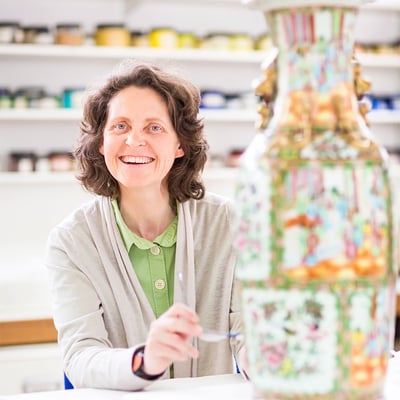
Programme Coordinator and Subject Leader for Ceramics and Related Materials
Lorna initially completed a BA(Hons) degree in Art and Design and a History of the Decorative Arts Programme, before attending West Dean as a student on the Programme she now leads. An MA related to Cloisonne enamel was completed in 2005 and continues to be a topic of interest.
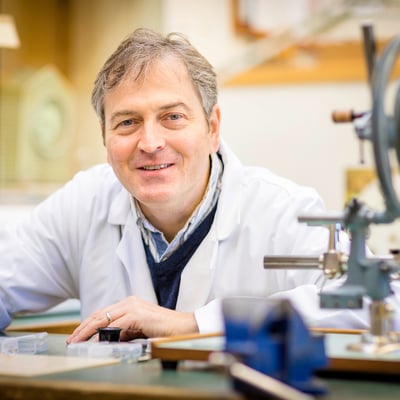
Subject Leader, Clocks (and Related Objects)
Malcolm's extensive experience in private practice, as well as the heritage sector/museums, lies behind his in-depth understanding of the profession. He brings a comprehensive knowledge of traditional craft skills, theory and contextual history. He also has an interest in new and innovative ways of applying conservation to mechanical objects.
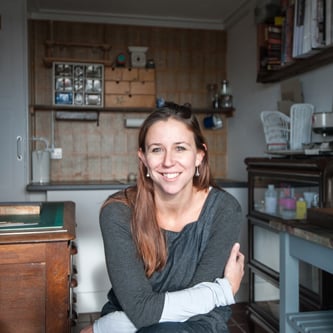
Subject Tutor, Books and Library materials
Maudie is a book and paper conservator and bookbinder. Having worked a various institutions and companies over the years, including the Victoria & Albert Museum and The National Archives, Maudie now works for herself, taking on commissions from museums, libraries, collections and private individuals. In additional to practical conservation and binding, Maudie also teaches a range of online classes in bookbinding to students all over the world.
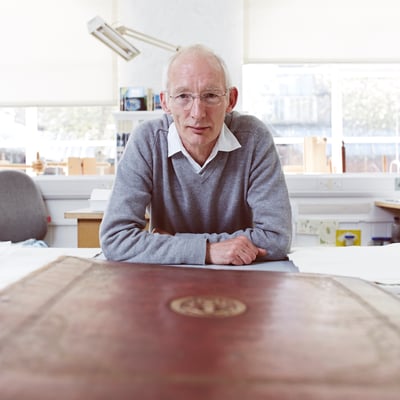
Subject Tutor, Conservation Science
David is a book and paper conservation specialist who has tutored more than a generation of book conservators since he began as a tutor in book conservation at West Dean College in 1988. He has taught science for conservators in the UK, USA and Europe, established the analytical laboratory at West Dean College in 2007 and has been the college's science tutor for 25 years.
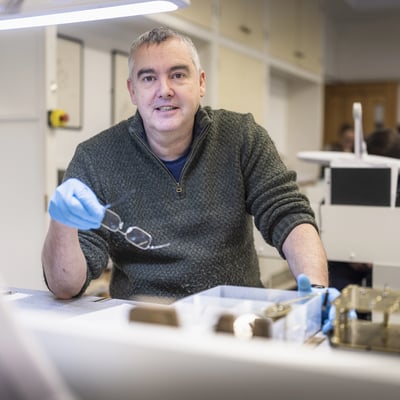
Subject Tutor, Clocks (and Related Objects)
Tim Hughes MBHI, clock maker, trained at West Dean College and works as a clockmaker and scientific instrument restorer, and as external consultant at Bellmans Auctioneers. He has received several awards, including the Trustees' Prize while at West Dean College and a QEST Scholarship.

Conservation Science Laboratory Tutor
Anna studied organic chemistry in Italy and her interest in academic research brought her to the UK. Her passion for research and art brought her to West Dean College, a very special and unique place where applied science meets cultural heritage.
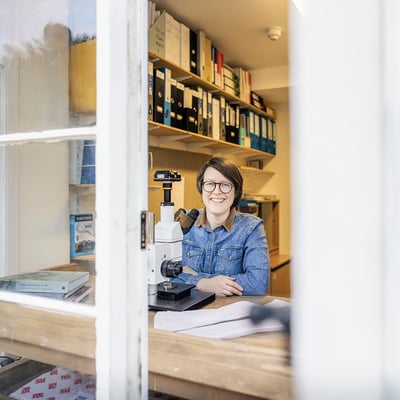
Subject Leader, Conservation Studies specialising in Metalwork
Kate's background includes practicing as a solicitor before making a career change to train as a blacksmith and specialist Metals Conservator. She earned an MA in Conservation Studies from West Dean, following which she founded a small business specializing in the conservation of forged and architectural metalwork.
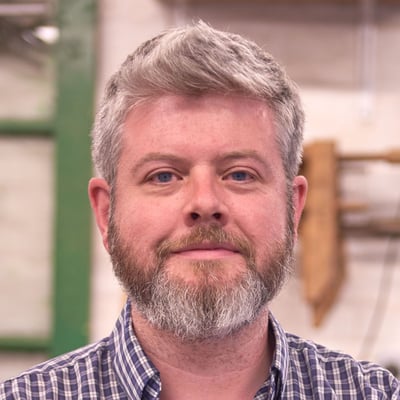
Subject Tutor, Furniture Conservation
Phil is a BAFRA accredited conservator/restorer based in Buckinghamshire. He has twenty years experience in private practice running a small business providing a professional conservation/restoration service.
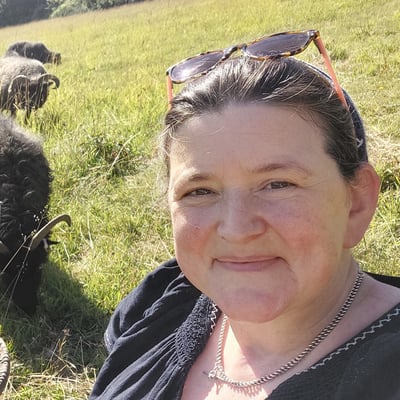
Subject Leader, Books and Library Materials
Victoria has worked in written heritage collections for over 25 years, mainly as a library and archive conservator and collections care adviser but latterly as a learning and engagement lead, a perfect complement to her overall collections work. In 2023 she was awarded a Fellowship of the International Institute of Conservation of Historic and Artistic Works. A proud advocate for the heritage profession, she not only serves as a Trustee of the National Manuscripts Conservation Trust but also as an Arts Council Museum accreditation mentor and an Institute of Conservation accreditation assessor.